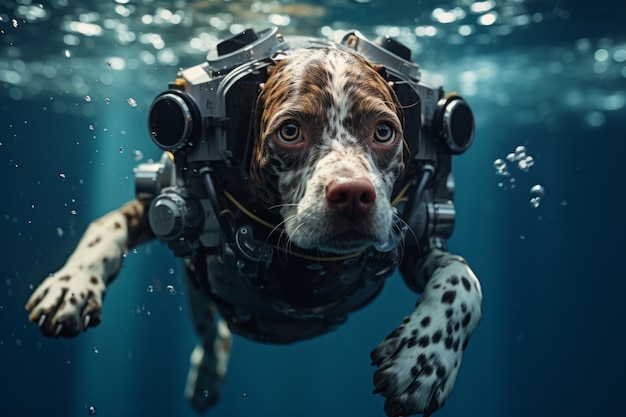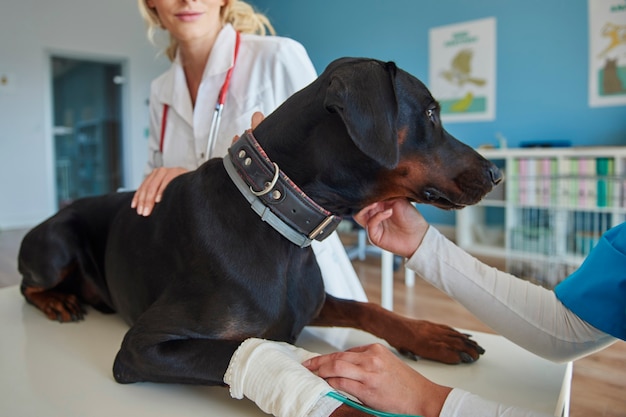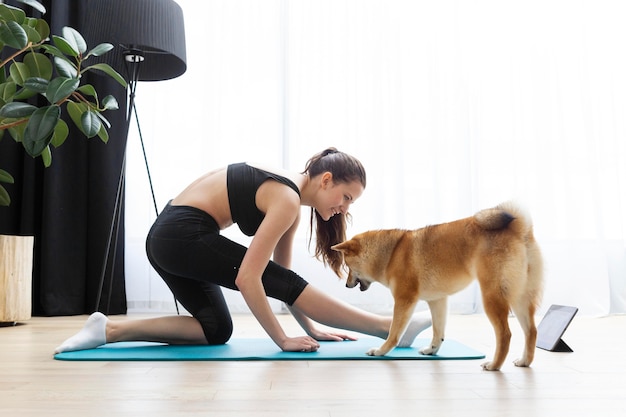What to Expect From Underwater Treadmill Therapy in West Caldwell


What to Expect From Underwater Treadmill Therapy in West Caldwell
If your dog or cat is struggling with mobility issues, recovering from surgery, or managing chronic joint pain, you may be searching for advanced solutions to restore their comfort and confidence. Many pet owners in West Caldwell and surrounding communities are discovering the remarkable benefits of underwater treadmill therapy, a specialized form of hydrotherapy for pets that combines gentle resistance with buoyant support. At Alpha Animal Rehab & Fitness, located conveniently at 975 Bloomfield Ave, Suite 1, West Caldwell, NJ 07006, our team of veterinary rehabilitation professionals is dedicated to helping dogs and cats regain independence, rebuild muscle, and enhance their overall quality of life through this cutting-edge therapy.
In this article, you will learn what to expect during an underwater treadmill therapy session, how this treatment accelerates recovery, and why so many pet owners in West Caldwell and nearby areas are seeking out this specialized service. We will guide you through the process, discuss the signs that indicate your pet may benefit from hydrotherapy, and explain how our expert team supports every step of the rehabilitation journey. If you're considering a "rehabilitation vet near me" or searching for hydrotherapy for pets in West Caldwell, we hope this overview helps you feel confident about taking the next step. For more information about our underwater treadmill service, you can explore our dedicated page on underwater treadmill rehabilitation.
Recognizing When Your Pet May Benefit From Underwater Treadmill Therapy
The decision to pursue specialized rehabilitation is often prompted by changes in your pet's mobility, comfort, or daily activities. For many pet owners, the first signs that something is wrong can be subtle. You might notice your dog hesitating before jumping onto the couch, or your senior cat becoming less eager to climb stairs. In other cases, recovery from surgery or injury may seem slower than expected, with your pet showing ongoing stiffness or reluctance to walk.
Common indications that your pet may benefit from underwater treadmill therapy include persistent limping, noticeable muscle loss, difficulty rising from a lying position, or visible discomfort after brief periods of activity. Some pets may struggle with weight management due to reduced activity, while others may develop behavioral changes such as restlessness, irritability, or withdrawal from family activities. If your pet has been diagnosed with arthritis, hip dysplasia, neurological conditions, or is on a post-operative recovery plan, underwater treadmill therapy can be a vital component of their rehabilitation.
Observing these signs is an important first step. Many general practice veterinarians in West Caldwell and surrounding areas refer pets to our specialty team for advanced rehabilitation when they see these ongoing issues. If you find yourself searching for a "rehabilitation veterinarian near me," it's likely time to consult with professionals who specialize in hydrotherapy for pets in West Caldwell.
Understanding the Causes: Why Mobility Issues Arise in Dogs and Cats
Mobility challenges in pets can result from a range of medical conditions, injuries, and age-related changes. For dogs and cats, the aging process often brings a gradual decline in joint flexibility and muscle strength, making everyday activities more difficult. Arthritis is one of the most common culprits, causing inflammation, pain, and stiffness that can significantly impact your pet's enthusiasm for movement. If you want to learn more about arthritis management options, you can read about arthritis management for pets.
In addition to arthritis, orthopedic injuries such as ligament tears, fractures, or spinal problems can lead to weakness and altered gait. Surgical procedures, while essential for correcting serious problems, often require a period of post-operative care to rebuild lost strength and coordination. Neurological disorders may also interfere with normal movement, resulting in balance issues or partial paralysis.
Obesity is another contributing factor, placing excess strain on joints and making recovery from other medical issues more challenging. In some cases, pets develop compensatory movement patterns due to pain or injury, which can lead to secondary muscle imbalances. Environmental factors—such as slippery floors, lack of exercise, or even seasonal weather—can further exacerbate these issues. All of these causes highlight the importance of targeted rehabilitation and the value of specialized services like underwater treadmill therapy in West Caldwell.
The Science Behind Underwater Treadmill Therapy: How It Helps Your Pet
Underwater treadmill therapy, sometimes called hydrotherapy, is a cornerstone of modern veterinary rehabilitation. This treatment leverages the natural properties of water—buoyancy, resistance, and hydrostatic pressure—to create a safe and supportive environment for exercise. During a session, your pet is placed in a specially designed treadmill chamber filled with warm water to a level tailored to their size and needs.
The buoyancy of water reduces the weight your pet's joints must bear, making movement less painful and allowing for longer, more productive sessions. At the same time, the gentle resistance of moving through water helps to strengthen muscles, improve cardiovascular fitness, and enhance flexibility. Hydrostatic pressure can also help decrease swelling and promote circulation, which is especially beneficial for pets recovering from injury or surgery.
A typical session is supervised closely by our veterinary rehabilitation professionals, who monitor your pet's comfort, adjust water levels and treadmill speed, and provide encouragement throughout the process. For pets with chronic pain, neurological deficits, or orthopedic concerns, this therapy makes movement enjoyable again and helps restore their confidence. You can read more about the underwater treadmill rehabilitation service we offer to pets in West Caldwell.
In addition to the underwater treadmill, our facility at Alpha Animal Rehab & Fitness also integrates complementary therapies such as laser therapy, manual therapy, and therapeutic exercise to provide a comprehensive, individualized treatment plan. These modalities work together to maximize recovery, minimize discomfort, and promote lasting improvements in your pet's mobility.
What to Expect During an Underwater Treadmill Session
When you arrive for your pet's first session of underwater treadmill therapy at Alpha Animal Rehab & Fitness in West Caldwell, our veterinary team will begin with a thorough assessment. This includes reviewing your pet's medical history, discussing your goals, and performing a physical examination to evaluate strength, range of motion, and gait. Every therapy plan is customized to meet your pet's unique needs, ensuring safety and optimal results.
Your pet will be gently introduced to the underwater treadmill, with plenty of reassurance and positive reinforcement. The water is gradually filled to the appropriate depth, and the treadmill speed is set to a comfortable pace. Throughout the session, our rehabilitation professionals monitor your pet for signs of fatigue, discomfort, or stress, making adjustments as necessary. Most pets quickly adapt and often begin to enjoy the sensation of moving freely in the water.
Sessions typically last between 15 and 30 minutes, depending on your pet's stamina and medical condition. Afterward, your pet is dried off and given time to rest. Over the course of several sessions, many owners notice improvements such as increased energy, smoother movement, and greater willingness to participate in daily activities. The number of sessions required depends on your pet's diagnosis and progress, but we work closely with you to set realistic expectations and celebrate every milestone.
Supporting Recovery at Home: What Pet Owners Can Do
Successful rehabilitation extends beyond the clinic. At home, you can support your pet's recovery by following the guidance provided by our rehabilitation veterinarians. This may include controlled on-leash walks, encouraging gentle play, or practicing prescribed exercises that reinforce the gains made during therapy. Ensuring your home is safe and accessible—such as using non-slip mats and ramps—can further reduce the risk of falls or reinjury.
Weight management is a crucial part of supporting joint health and reducing pain. Our veterinary professionals can provide advice on appropriate diets, portion control, and ways to keep your pet active without overexertion. You may also be interested in our weight management services for pets if your dog or cat is struggling with maintaining a healthy weight. Monitoring your pet for changes in behavior, appetite, or mobility is essential, as small shifts can indicate the need for a therapy adjustment.
Remember, patience is key. Progress may be gradual, and every pet advances at their own pace. Open communication with your rehabilitation team ensures that your pet receives the individualized care and encouragement they need throughout their recovery journey.
When to Seek Professional Rehabilitation Services
Knowing when to seek professional help can make a significant difference in your pet's comfort and long-term mobility. If your pet is recovering from surgery, has been diagnosed with a chronic condition like arthritis, or is showing persistent signs such as limping, weakness, or reluctance to move, it is time to consult a rehabilitation veterinarian. Pets that are not responding to traditional pain management, or those whose activity level is declining despite your best efforts, can also benefit from advanced therapies.
Prompt intervention is particularly important for senior pets, pets with neurological disorders, and those who are overweight or prone to orthopedic injuries. The earlier rehabilitation is integrated into their care plan, the greater the likelihood of restoring function and preventing secondary complications. If you are searching for a "rehabilitation vet near me" or want to learn about hydrotherapy for pets in West Caldwell, Alpha Animal Rehab & Fitness is here to support you.
Our facility is equipped with the latest rehabilitation technology and staffed by an experienced veterinary team devoted exclusively to physical therapy and fitness for pets. We accept referrals from general practice veterinarians throughout West Caldwell and surrounding communities. Your pet does not need to be an athlete to benefit—our patients range from energetic puppies to wise senior cats, all seeking to enjoy life to the fullest.
Conclusion: Take the First Step Toward a Happier, Healthier Pet
Underwater treadmill therapy is a powerful tool for restoring mobility, relieving pain, and enhancing the wellbeing of pets in West Caldwell and the surrounding communities. If you have noticed your pet slowing down, struggling with everyday activities, or not bouncing back after surgery, specialized rehabilitation may be the solution you have been searching for. Our team of veterinary rehabilitation professionals at Alpha Animal Rehab & Fitness is committed to guiding you and your pet through every stage of recovery with compassion and expertise.
Whether your primary concern is arthritis, injury, or simply ensuring your senior dog enjoys their golden years, our facility provides the advanced care your pet deserves. Contact us today at (908) 454-2273 to schedule a consultation or learn more about our underwater treadmill rehabilitation services. If you have been searching for a "rehabilitation veterinarian near me" or want to know more about hydrotherapy for pets in West Caldwell, our doors are open and our team is ready to help.
For more resources on maintaining your pet’s health, you may also find our information on arthritis management for pets helpful. Your pet’s journey to improved mobility starts with a single step, and we are honored to walk that path with you.
Disclaimer: The information provided in this article is for educational purposes only and is not a substitute for professional veterinary advice. Always consult with your veterinarian or a qualified rehabilitation specialist before starting any new therapy for your pet.




